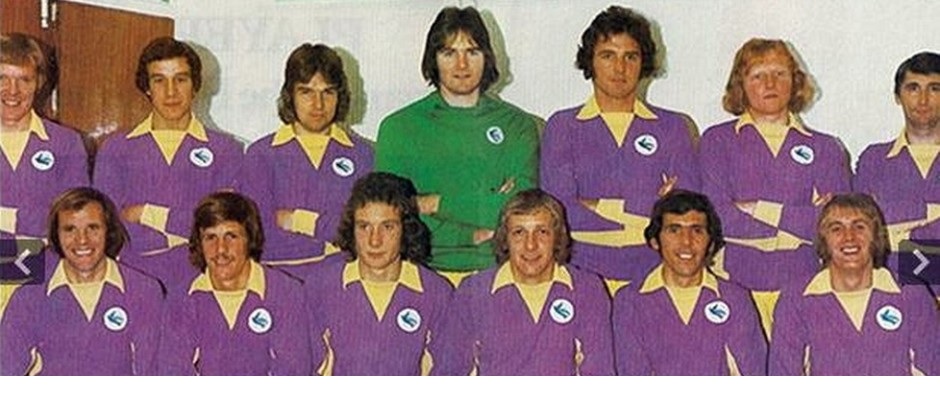
I’ve not checked this, but the BBC, who usually get these sort of things right, are saying that we’ve not lost a league game at Fratton Park, Portsmouth since 1974, although the fact that we’ve only won there once in that time rather gives it away that games between the two teams have been pretty rare in the last half a century.
There’s only been six league matches between the two sides at that famous and atmospheric old ground since that 1-0 Portsmouth win fifty one years ago and, apart from a 2-0 City win early in 10/11, they’ve finished all square each time.
I’d certainly take a draw tomorrow, Portsmouth have won six and only lost one of their last nine home games and even the home camp were admitting after Saturday’s 2-1 loss at high riding Sheffield United that Portsmouth had been the better side.
If that is true, then it’s against the pattern of a season which sees Portsmouth mixing home wins, often high scoring ones, with away defeats, often heavy ones, in which they were definitely second best.
It shouldn’t be forgotten that before the rout at Elland Road, City had made themselves hard to beat away from home, but even though we’ve drawn a couple more than we’ve lost on our travels, only Plymouth and Portsmouth have conceded more away goals than us in the Championship and that familiar brittleness at the back was there again at Stoke in the Cup on Saturday.
We beat Portsmouth more comfortably than the final score of 2-0 suggests when we played them at Cardiff City Stadium around four months ago, but I don’t think too much can be read into that. I believe we’ll have to show the sort of resolve we did at places like Middlesbrough and Watford if we are to get anything out of tomorrow’s game.
Here’s the normal quiz with seven questions about tomorrow’s opponents – I’ll post the answers on here on Wednesday.
60s. This forward was born on the other side of the river from the team he made his league bow with, but, before that, he played a few games for non league Krooners (they played at Krooner Park) before making the move to the old First Division. it took him a couple of years to make his first appearance, but, after scoring on his debut, he became a regular pick alongside something of a prodigy with whom he enjoyed a very profitable partnership in one season early in this decade. The prodigy left though, as did the manager who’d rated our man and when the new manager turned out to be less keen on him, his man’s career took a downward turn. Even though, he stayed in the top flight with a team that was just about to enter the most successful spell in its history, he struggled for form and soon dropped down the divisions to play outside London, not very far outside mind, for the first time in his career. Again, his record was modest, but Portsmouth took him on and he was a regular with them for the last five years of his career even if the goals came at nowhere near the rate they once did. Finally, he was one of a fairly large number of footballers back then who never used to have to worry about what they’s do in the summer, can you name him?
70s. At a time when it was more usual for players to stay at one club for the whole of their careers, this London born midfielder (who would probably be regarded as a number six if we was playing now) was more of a nomad and Portsmouth was one of two clubs he had two spells with. He stayed by far the longest with his first club which was not too far from his birthplace, but far enough away to be considered a realistic holiday option for many who lived in the capital. He set a club record for his first team and over four years he proved himself to be too good for the level he was playing at. He moved back to London to join the other club he had two spells with and again prospered, although his next move to a team in transition after an amazing triumph did not go well and his first move to Portsmouth soon followed. Always in demand, he was on his travels again after two years, this time to another place that owed much of its prosperity to its nautical history. His next move, to the Midlands to play in blue, saw him earn a promotion to the top flight, and, although he never got to play in the First Division for them, a return to his second club meant that he did become a regular at the highest level for a season in which he eventually was made team captain. A return to Portsmouth was next on his agenda, but, finding it harder as he passed thirty, he wasn’t as influential as usual and, for the first time in a decade, he stepped into the lower divisions with a loan moves to white male animals. Following his release by Portsmouth, he played in South Africa for a while and then in Fawlty country before dropping into non league football. Who is he?
80s. Earl groans as he becomes wide man for both clubs. (4,6)
90s. One of the gospels combines with singer that only resides in the south east part of the UK these days..
00s. Posh name for a barn perhaps teamed with what sounds like a shrewd animal gets you a defender!
10s. This defender started off his career with Portsmouth during this decade and came on for his present club in the closing stages of what was a notable FA Cup win this weekend. He’s also scored a penalty in a losing FA Cup shoot out for the same team, when victory would have given them a place in the Final for the second time in the club’s history, who am I describing?
20s. Just recital of early letter?
Answers
60s. Streatham born Ron Tindall played a few games for Camberley Town before becoming a youth player at Chelsea and when he eventually broke into the first team, he partnered the young Jimmy Greaves up front as they scored a record breaking fifty nine goals between them in 60/61. Greaves soon left for Italy though and the arrival of new boss Tommy Docherty saw Tindall sold to West Ham where he struggled. Things didn’t go too well for him at Reading either, but he settled well at Portsmouth until he called it a day in 1969 at the age of thirty four. Tindall also played county cricket for Surrey, in fact his early contract with Chelsea contained a stipulation that he would miss the first and last months of the football season to play cricket.
70s. Bobby Kellard became Southend United’s youngest ever player when he made his debut for them at sixteen and his consistently good performances eventually earned him a move to Crystal Palace. The upward trajectory of his career continued with a move to recent First Division Champions Ipswich that did not work out and he moved on to Portsmouth for the first time. Spells with Bristol City, Leicester and a return to Palace followed and he then signed for his second speel with Portsmouth before a loan move to Hereford and there was also a short spell at Torquay for the man who scored the only goal of that 1974 win over City at Fratton Park.
80s. Alan Rogers.
90s. Luke nightingale.
00s. Hayden Foxe.
10s. Adam Webster came on as a sub for Brighton in their 2-1 win over Chelsea on Saturday, he also scored a penalty in a shoot out defeat for Brighton against Man United in an FA Cup Semi Final in 2023.
20s. Christian Saydee (Dee is an early letter in the alphabet).



